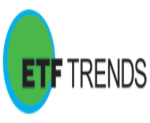
Vanguard Ramps Up Risk Management With Chief Risk Officer Hire
Institutional Investor: A Greenwich Associates report shows that institutions, particularly buy-side trading desks, have nearly doubled their spending on risk technology for 2018.

Institutional Investor: A Greenwich Associates report shows that institutions, particularly buy-side trading desks, have nearly doubled their spending on risk technology for 2018.

Criptonoticias: Una investigación realizada por la consultora Greenwich Associates reveló que el 72% de 141 ejecutivos encuestados, relacionados con el mundo de las finanzas, considera que los criptoactivos han llegado para quedarse dentro de la...

Forbes: "They’re telling us that they don’t think it’s going away and that it’s here to stay," says Richard Johnson.

Forbes: A Greenwich Associates study claimed that for more than 250 investors, LinkedIn was the most preferred social media source with 48% of all institutional investors using the networking service.

Law360: “That is not the way things work,” Richard Johnson said. “The SEC is supposed to come up with the rules.”
Bloomberg: “Credit market participants have been forced to make a trade-off between liquidity and specificity, and they’re choosing liquidity,” according to Ken Monahan.

ETF Trends: Wealth management and institutional investors are projected to increase their use of fixed income ETFs over the next few years, according to Greenwich Associates.

PlanSponsor: According to Greenwich Associates, institutional assets are flowing into ETFs as U.S. institutions, including defined benefit (DB) plans, integrate them into essential investment functions...

The Trade News: Kevin McPartland warned that regulators must be wary that looser rules could erode price transparency that has been gained over recent years.

Risk: Greenwich Associates estimates that internalisation of US Treasuries trades at the largest primary dealers has become a “sizable” part of the market.